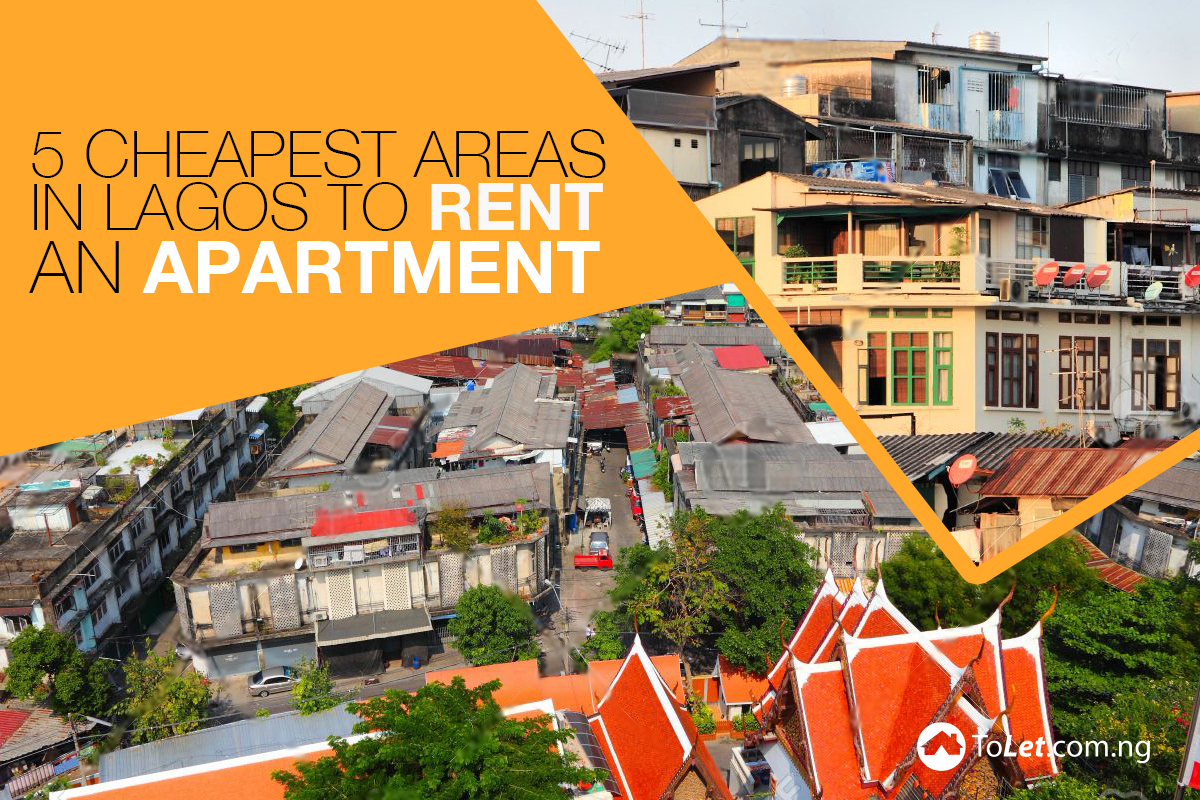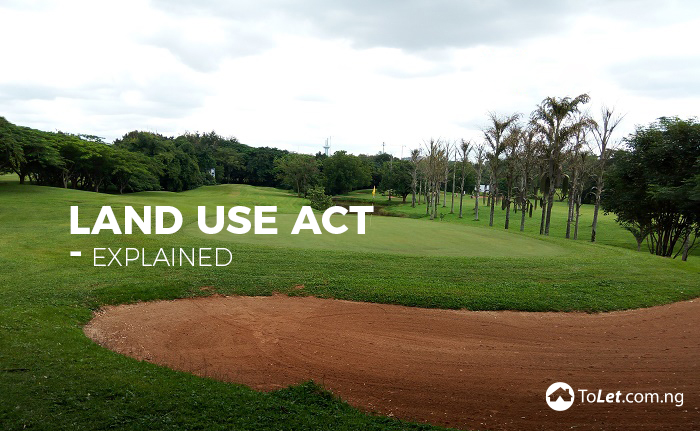Realities of COVID-19 in the Real Estate sector in Nigeria

The world expected 2020 to be a lot of things, a lockdown was definitely not one of them. A clear-cut pandemic, known as the Corona Virus has forced businesses, individuals and even the most powerful economies in the world to rethink the way they live, work, and play.
In early March, China, the second-largest economy in the world and the Coronavirus “parent country”, reported the largest mortality figures. The virus halted production, disrupted the supply chain and set the Chinese economy in disarray. At the time, Bloomberg Economics reported an estimated $2.7 trillion in global output loss, but it looks like this prediction is about to change.
Compared to early March, when about 80,000 cases and 3,015 deaths were reported in China, countries like Italy, Spain, and most especially, the USA is now taking the lead. As of when this article was written, China maintains 81,907 cases and 3,336 deaths, while the USA maintains a whooping 475,237 confirmed cases and 17,055 deaths.
The world has had to take in another surprise – as other economies are shutting down, businesses in China are kicking off. Largely because of her huge manufacturing and export influence, 70% of the Chinese economy has resumed business as usual.
Where Does this Leave the Rest of the World?
Amongst all established realities, an undeniable truth is a fact that the further the pandemic persists, the greater its impact on the world economy. In order to deal with the potentially prolonged disruption, we’ve seen businesses continue to evolve their contingency measures.
Consistent reports from the NCDC and international news depicts that developments are extremely fluid, further unbalancing the certainty of the pandemic aftermath. Global oil prices have, however, contributed to the challenges Nigeria will be facing even after the virus runs its course. Being a major oil-exporting country, especially to China, the Coronavirus has caused a foul cut in oil revenue and an economic downturn for Nigeria. There is a high chance that the economy could be heading into recession again, given that promises of diversification by the government have not been fulfilled.
Speaking from a global perspective, economists are using the 2003 SARS epidemic to put the Coronavirus outbreak in perspective. SARS consumed at least 0.5% – 1% of China’s economic growth as well as about $40 billion of global GDP (0.1%). The similarity in this analysis is that SARS also originated in China but what makes the dreaded difference is the hardened effect.
In 2003, Chinas’ economy accounted for 4% of the world’s GDP, that figure is currently over 16.3%. Therefore, if the Coronavirus eventually matches up to the mortality ratio of the SARS epidemic, the effect will be worse. Another challenge is that compared to 2003, China’s growth rate currently stands at 6%, the weakest since 1990. China is an important world power, her dwindling economy will have ripple effects on Nigeria. The crude oil clause already established that fact.
Although China is seen to be recovering, the pace is not entirely encouraging. Residents still find it difficult to resume regular activities, which means businesses will suffer income shortage. This system, sadly, will be duplicated in Nigeria even after the last Coronavirus patient tests negative, months will pass by before social distancing becomes history.
According to Fitch Ratings, the pandemic will push the Nigerian economy into recession with GDP contracting by 1%. Also affected by diminishing oil revenue, non-oil GDP will fall due to economic disruptions in major cities currently experiencing lockdown.
The possibilities of the oil sector bouncing back and recession being contained are hinged on the elasticity of the pandemic.
A much-appreciated relief will come from the government; in terms of reduction in the interest rate on mortgages. Just like the system the CBN adopted for farmers and SMEs, loans should be more accessible from all banks. In addition, Value Added Tax (VAT), which has been increased from 5% to 7.5% can be reworked to ease up economic tension especially for low and medium-income earners.
What Lies ahead for the Real Estate Industry?
In Nigeria, two guaranteed effects have already been established: people generally worried about contracting the virus and a consistent decline in income. While individuals are getting more concerned with survival, the willingness to invest in real estate is shrinking.
The commercial and hospitality sub-sect seems to be taking the first-hand blow. With compulsory lockdown enforced in the major cities, hotels, malls, restaurants, luxury homes, and office buildings are currently empty. A very important question is whether employers will be convinced to continue the work-from-home system even after the global health crisis. Another important factor that will determine office demand is if the Coronavirus decides to extend its stay, the demand for office space will definitely falter.
Moving on to rental apartments, property owners are bracing themselves to deal with tenants who have either lost their jobs or are currently experiencing acute salary cuts. In France, the government is cushioning the effect of the COVID-19 by suspending rent payment, this doesn’t look like a reality for Nigerians. In the long run, Landlords will have to manage rent-relief requests.
What happens to Landlords who solely depend on proceeds from their properties for survival? The answer to this question can only be determined by how long social distancing will last.
With the pandemic forcing more economies to focus on their health sector, importation of building materials will slow down. In the case of Nigeria, where foreign exchange is becoming a bigger challenge, importation will be costlier. An ensuing fact will be that home builders have to observe social distancing, which leaves property development hanging. Although this hasn’t happened yet, the Nigerian government still allows a maximum of 15 men on any building site.
Home shoppers/developers, on the other hand, are already pausing on purchasing decisions too, considering a possible crash in the stock market.
For property marketing, PropertyPro.ng has educated and advised real estate agents to adopt video tours as a contingency measure. With social distancing in motion, we have also advised agents to tighten communication strategies and carry out virtual inspections via WhatsApp and Skype. There’s however, a huge clause in this “solution”; if the pandemic spans longer, the lockdown will stiffen and agents will barely have access to new properties.
According to Forbes, an NAHB (National Association of Homebuilders) survey stated that 81% of respondents confirmed that the Coronavirus has an adverse effect on the number of prospective homebuyers in America. The lockdown keeps escalating and another 54% of respondents reported difficulties in getting building materials for homes.
If the USA, the world’s largest economy, is going through unappealing changes, Nigeria’s property market doesn’t stand a chance. For obvious reasons, property purchasing rate in Nigeria has drastically reduced by 80%.
Can we possibly find a Silver Lining?
According to a Chinese report, the SARS epidemic has inspired real estate investors in China to diversify investment across real estate asset divisions. To manage disruptions in the property market, Chinese property investors have cast their net beyond residential, office, and commercial properties to areas like data centers, logistics, and Proptech.
Nigeria, on the other hand, is exploring the Proptech field already, which is why real estate firms are still active but are operating skeletally.
Considering how a global health crisis has successfully morphed into an economic catastrophe, the effects will linger for a while until vaccines have been developed to eradicate the virus.. People will take time to adjust – the real estate sector will be a little slow in revival as everyone will be worried about coming in contact with silent carriers. This will eventually affect general supply across the world.
A bigger challenge will occur if the Coronavirus is not evenly contained globally, demand will suffer a great deal as well.
Using epidemiological modeling, a study carried out by the Imperial College in London guaranteed the validity of our projected fears:
“To avoid a rebound in transmission, these [social distancing] policies will need to be maintained until large stocks of vaccine are available to immunize the population – which could be 18 months or more. However, there are very large uncertainties around the transmission of this virus, the likely effectiveness of different policies and the extent to which the population spontaneously adopts risk-reducing behaviors. This means it is difficult to be definitive about the likely initial duration of measures which will be required, except that it will be several months.”
The threat of this reality will spread across intricate aspects of human survival, which ultimately affects the real estate industry.
A comforting reality might be in favor of real estate investors with substantial investment power. Considering the evident devaluation of Naira, which adversely affects property value, Landlords may deem it necessary to sell off properties at distressed prices. With enough caution and good investment-sense, a class of investors will enjoy benefits.
We would be updating this article as the situation changes. Until then, do well to stay safe!









